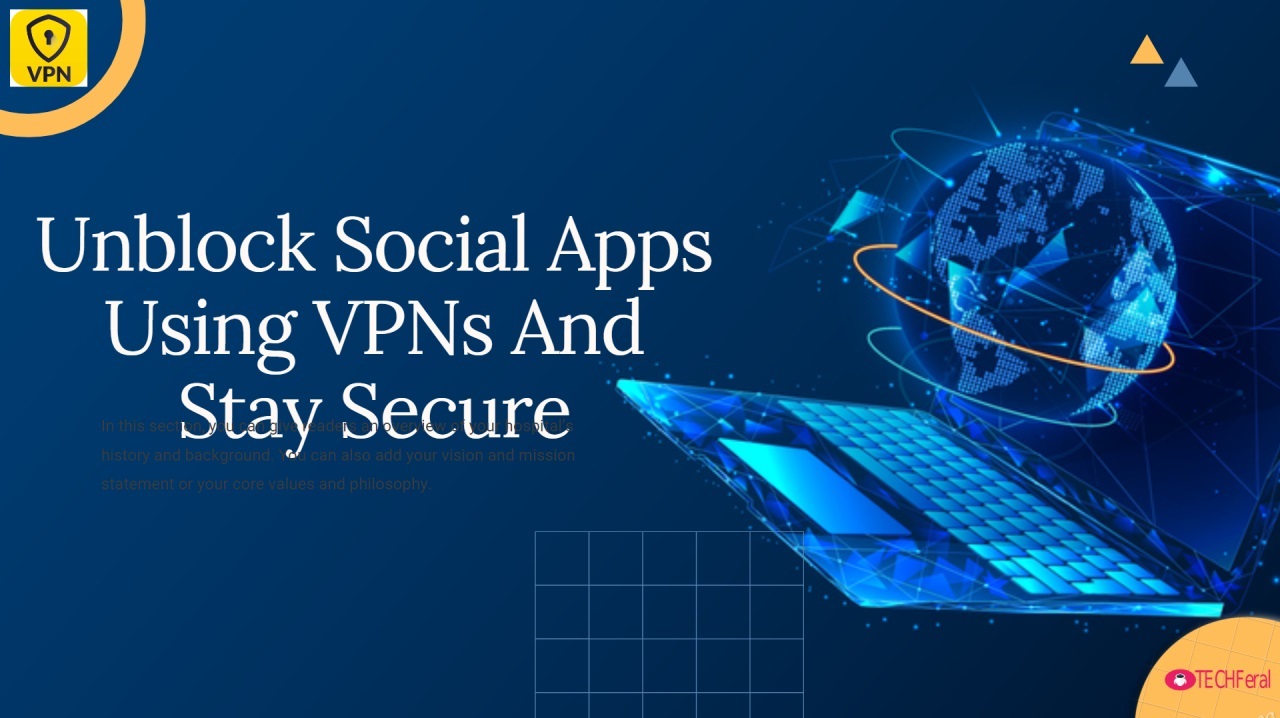
Last updated on : January 28th, 2024 by R Yadav
Social media has grown to be an essential element of our daily lives. Companies benefit from being able to instantly promote their services and goods, in addition to building real associations with consumers via social networks. We risk jeopardizing our safety and confidentiality by sharing details of our lives on the Internet. Malicious actors are constantly on the lookout for means to gain access to people's secure details to utilize them for monetary fraud or stealing their identity.
Social media applications collecting your data illegally have greater chances. All the more reason why you should purchase a trusted VPN (Virtual Private Network), which, besides unblocks the social networking apps that have been restricted in your country of residence, additionally provides extra safety by making sure no third party has access to your information. Let us look into how a VPN carefully may assist you in unblocking social media apps efficiently.
VPNs can be helpful for blocked apps, and the following is the explanation:
A VPN allows you to bypass GPS limitations and effortlessly access social media apps that may be restricted within your country. A new VPN address for a different location with no restrictions will be assigned by a VPN provider. You will have access to other internet content blocked as well such as certain sites PDF books/docs etc.
VPNs encrypt your web page traffic data, making it difficult for network supervisors and Internet Service Providers (ISPs) to view and track what you're doing online. Additional layers of privacy allow individuals to operate social media apps regardless of areas and surroundings with tough internet restrictions. Furthermore, when you use a VPN, your IP address is switched out by the IP address of the VPN server.
In certain instances, educational institutions and organizations shut down accessibility to social media to ensure pupils and staff remain concentrated on their responsibilities, be efficient, achieve all of their intended objectives, and avoid distractions from social media apps or various websites. A VPN can enable you to bypass these barriers and acquire freedom from restricted sites and content.
Internet Service Providers (ISPs) may bandwidth and restrict the use of certain sites and social media platforms. A VPN allows you to get around these constraints by encrypting the data you transmit and hindering your ISP from tracking or throttling your access to the internet.
Using social media on a free public WIFI, such as shopping centers or restaurants, may require exercising caution because public networks are particularly prone to hackers as well as cyber-attacks, jeopardizing the security of your personal information. VPNs defend confidentiality by concealing your IP address and encrypting your online activity while offering an encrypted connection over unprotected networks. The safety precaution is useful for using social networking sites on open networks.
A VPN encrypts your internet traffic. This encryption can only be deciphered using a key, which can only be accessible to the device itself and the VPN service provider. Because of this ISPs and other third parties fail to monitor how you spend your time online. Following is how a VPN protects the device you're using through encryption:
Free VPNs might seem a convenient way to go, but they do have some shortcomings. Initially, their source of income is selling off your confidential information to third parties, which endangers your privacy.
Furthermore, free VPNs are almost always overloaded with users while offering limited servers only. Because of less number of servers, evading GPS limitations may prove a challenge. The free VPNs additionally feature lower speeds and efficiency, limiting your access to the web.
Before deciding on a VPN for social media accessibility, factors must be considered. Go through the key criteria for choosing a VPN:
An effective way is using a VPN when an individual requires access to social media wish might have been restricted within the area or region. One will have access not just to social media platforms but there are other benefits as well, such as protection against ISP monitoring or any threats on the internet or government surveillance. Considering major parts of our lives are on the internet making the digital age scary and uncertain. VPNs improve and enhance your privacy and security on a whole different level.
Read Next: ChatGPT and Privacy: What Happens To Your Personal Data?